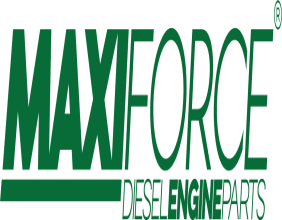The supermarket chain, J Sainsbury PLC is planning to undergo structural changes as part of their strategy to save in costs amounting to £500 million by 2024. This structural reorganisation will lead to many job cuts, specifically management positions as the group looks forward to integrating with Home Retail Group Argos, which was bought by the company in 2016 for £1.4 billion. J Sainsbury PLCâs takeover of Argos, owned by Home Retail Group, made the group Britainâs biggest merchandise group of general goods.
The takeover of Argos by the company was a strategic move made by the group to increase its productâs portfolio and reduce the dependence on the highly aggressive grocery market and acquire the online delivery business model of Argos. Now, J Sainsbury PLC will add to its own range of homeware and other non-food goods by placing Argos stores into its supermarkets.
As communicated by Mike Coupe, the CEO of the supermarket chain, since the beginning of the financial year in March 2019, the thinktank and higher management of the group had already been reduced by 20 per cent. Mike confirmed that as a plan to save £500 million in costs by 2024, this move of structural reorganisation would ultimately lead to hundreds of job cuts. He, however added that the company was well poised to help its customers live well for less and deliver a seamless shopping experience. He also said that the need of the hour is to continue adapting to satisfy the customers in the future, which will not be easy but important.
The company has sensed the gaining momentum in the business, which can be improved by reducing the turnaround time for customer needs and reorganising the structure of the company. The integration of businesses will help the group in reinvesting in customer services and unlock efficiencies. The company believes that these changes will take it forward and enhance the customer experience across the product lines. Â While Argosâ full-year results showed the impact on profits of early stages of integration, but the company believes that it will ultimately lead to cost reduction and improvement of efficiencies.
Recent business performance of J Sainsburyâs PLC
J Sainsbury PLC announced its trading statement for the third quarter on 8th January 2020. The groupâs total retail sales (excluding fuel) declined by 0.7 per cent and sales (excluding fuel) on a like-for-like basis too, the retail sales declined by 0.7 per cent for the period. The groupâs sales from grocery business went up by 0.4 per cent, while the groceries online sales went up by 7.3 per cent for the period. The total sales from online business went up by 5 per cent for the quarter. The groupâs clothing business witnessed a growth of 4.4 per cent for the period. The sales from General Merchandise was down by 3.9 per cent for the third quarter of the fiscal year 2020. The group witnessed strong online growth and strong grocery performance as it creates one multi-brand with the multi-channel business.
Directorate Changes at J Sainsburyâs PLC
Mike Coupe had confirmed his intention to retire later this year after serving for a period of around six years as CEO (Chief Executive Officer) and fifteen years working for J Sainsbury PLC. His customer handling abilities and knowledge and understanding of the retail sector is second to none. He shall continue to serve as the current role until the end of May 2020. However, Mr. Coupe shall continue to serve as the Director from 1st June until the Annual General Meeting, which will be held on 2nd July 2020, at which he will retire from the group. Mr. Coupe has added enormous value to the business, to employees and to all the stakeholders of the group during his tenure and has invested more than fifteen years working for the group.
The company announced Simon Roberts as Mr. Coupeâs successor. Mr. Roberts has a cumulative experience of more than 30 years in the retail industry and joined Sainsbury's as Retail and Operations Director in July 2017.
About J Sainsburyâs PLC
J Sainsburyâs PLC Â (LON:SBRY) is a British chain of supermarkets, operating primarily in the United Kingdom. The company engages in grocery-related retailing and retail banking with interests in property as well. The groupâs functions are distinguished into four operating segments: Retail â Food, General Merchandise and Clothing, Financial Services & Property Investment.
J Sainsburyâs PLCâs Stock price performance

Daily Chart as on 22-January-20, after the market closed (Source: Thomson Reuters)
On 22nd January 2020, SBRY shares closed at a market price of GBX 208.00 per share.  The market capitalisation of the company was recorded at around £4.60 billion.
The companyâs shares were at 29.72 per cent lower from the 52-week high price mark and 17.65 per cent higher than the 52-week low price mark at the current level, as can be seen in the price chart. On 7th February 2019, the shares of SBRY had touched a new peak of GBX 296.40 and reached the lowest price level of GBX 177.05 on 15th August 2019 in the last 52 weeks.
The stockâs traded volume was hovering around 4,294,360 at the time of writing at the market close. The companyâs 5-day stock's daily average traded volume was 8,527,209.80; 30 days daily average traded volume- 7,250,318.07 - and 90-days daily average traded volume â 7,050,582.43. The volatility of the companyâs stock was slightly on the higher side as compared with the index taken as the benchmark, as the beta of the companyâs stock was recorded at 1.07 with a dividend yield of 4.65 per cent.
The shares of the company have delivered a negative return of 1.39 per cent in the last quarter. The companyâs stock plunged by 7.61 per cent from the start of the year to till date. However, the companyâs stock has given investors 22.20 per cent of a negative return in the last one year.Â




